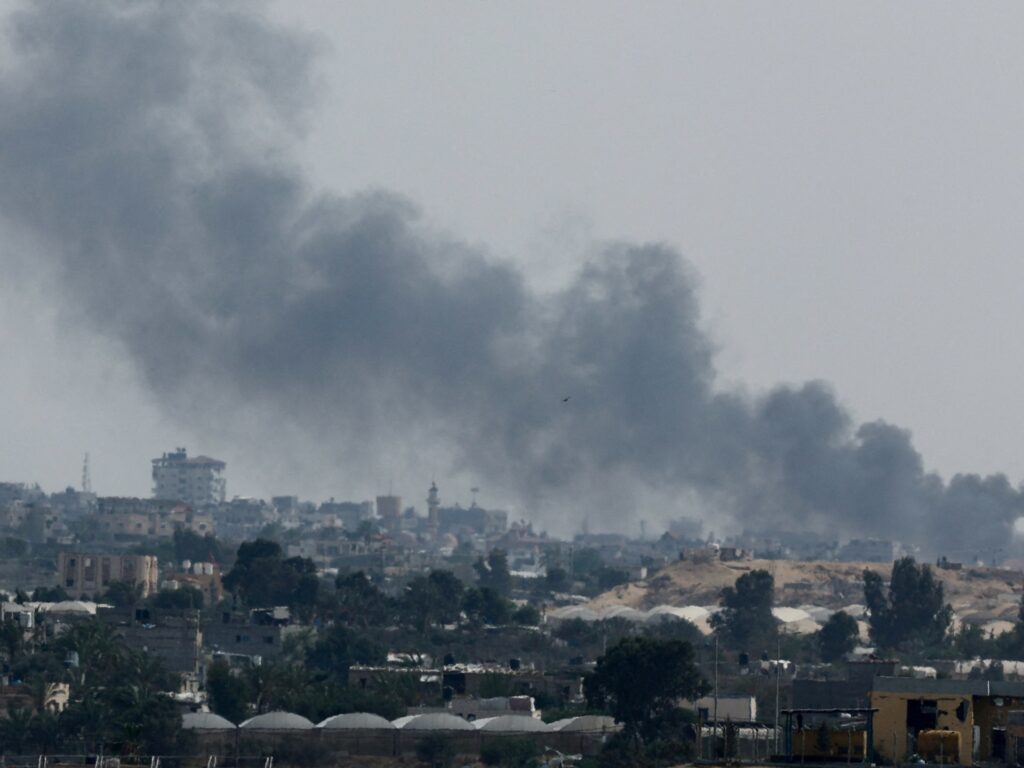Israel’s national security adviser says the ongoing war on Gaza is expected to last until the end of the year.
In an interview with Israeli public broadcaster Kan on Wednesday, Tzachi Hanegbi said that “we expect another seven months of fighting” to destroy the military and government capabilities of Hamas and the smaller Palestinian Islamic Jihad (PIJ) group.
His remarks come as Israel finds itself increasingly isolated on the world stage, nearly eight months after the assault began, with even the United States and other close allies expressing outrage at the death toll among civilians.
Hanegbi defended ongoing Israeli operations in Rafah, on Gaza’s border with Egypt, saying the border had become a “smuggling kingdom” since 2007, when Hamas began ruling Gaza.
“Every rocket, every explosive device, every shot fired at Israel is because this border was violated,” he said.
Later on Wednesday, an Israeli military spokesperson said the army had taken “operational control” of the narrow Philadeplhi Corridor, a buffer zone between Egypt and Gaza created under the Treaty of 1979 peace between Israel and Egypt.
“In recent days, our forces have taken operational control of the Philadelphia corridor,” Army spokesman Daniel Hagari said in a televised address.
Egypt has expressed serious concerns over the Israeli offensive on Rafah, saying it threatens the peace treaty.
Hanegbi’s remarks raise questions about the future of Gaza and what kind of role Israel will play there. Already, its main ally, the United States, has demanded that Israeli Prime Minister Benjamin Netanyahu present a post-war vision for the Palestinian territory, and his defense minister and a top government partner have warned that he had to take steps to ensure that Israel did not remain in Gaza indefinitely.
The Israeli attack has already devastated Gaza’s urban landscape, displaced most of the territory’s population and triggered a humanitarian catastrophe and widespread famine. Israel claims it must dismantle the remaining Hamas battalions in Rafah and has also said it will seek to ensure indefinite security control over the Gaza Strip.
Hamas has rejected any post-war plans that would exclude the group, reiterating that it would remain in Gaza.
The Rafah offensive has so far killed dozens of Palestinians while NGOs and trade unions have declared Gaza a “famine-stricken” zone.
Recent attacks have hit so-called safe humanitarian areas near Rafah, killing dozens of people, according to Palestinian officials.
Israeli tanks entered the heart of the city of Rafah on Tuesday, despite an order from the International Court of Justice for Israel to end its attacks in the area.
The situation is “getting worse”
Tel Aviv Tribune’s Hani Mahmoud, reporting from Deir el-Balah, said that in the central part of Rafah city there is “a confirmed report of families stuck inside their homes, caught in the line of artillery fire.
Israeli quadcopters chased people there, he said, preventing them from evacuating to safer areas.
“From the northeast to the northwest of Rafah, where tent camps have been attacked in recent days, the situation is worsening by the hour due to large-scale military operations,” Mahmoud said.
“At the same time, almost all health and public facilities are currently out of service. »
The World Court said Israel had failed to explain how it would keep Rafah evacuees safe and provide them with food, water and medicine. Its decision also calls on Hamas to immediately and unconditionally release the hostages kidnapped from Israel on October 7.
Residents of Rafah said Israeli tanks penetrated Tal as-Sultan in the west and Yibna and near Shaboura in the center before retreating to a buffer zone on the border with Egypt, rather than staying put. as they did during other offensives.
Palestinian health officials said Wednesday that 19 civilians had been killed in Israeli airstrikes and shelling on Gaza.
Health Minister Majed Abu Ramadan urged Washington to pressure Israel to open the Rafah crossing to Egypt for aid supplies, saying there was no indication that Israeli authorities would do so soon and patients in the besieged Gaza Strip were dying from lack of care.
The United States, Israel’s closest ally, reiterated its opposition to a major ground offensive in Rafah on Tuesday, while saying it did not believe such an operation was underway.
Hamas’ military wing and that of its ally PIJ said they confronted the invading forces in Rafah with anti-tank rockets and mortar shells and detonated the explosive devices they had planted, allowing numerous successful shots.
The Israeli military said three Israeli soldiers were killed and three seriously injured.
In the nearby town of Khan Younis, an Israeli airstrike killed three people overnight, including Salama Baraka, a former senior Hamas police officer, medics and Hamas media said. Another killed four people, including two children, doctors said.
In northern Gaza, Israeli forces bombarded neighborhoods in Gaza City and moved deeper into Jabalia, where residents said large residential neighborhoods had been destroyed.
More than 36,000 Palestinians have been killed during the Israeli offensive in Gaza, according to health authorities.

